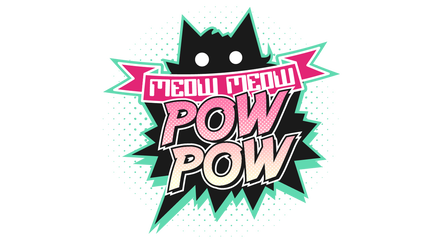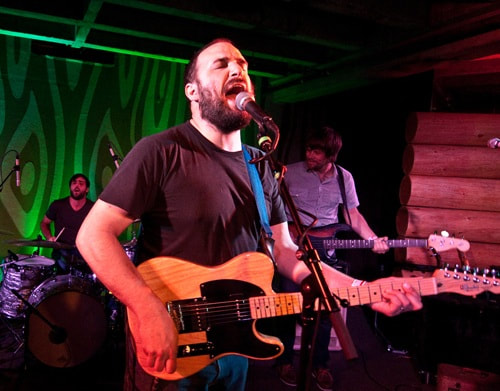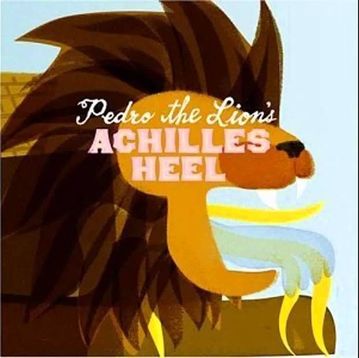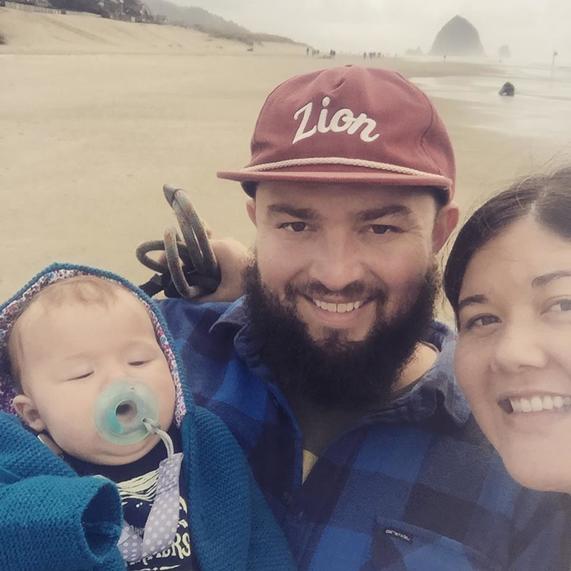Levi RogersThere’s something special about following a band for over a decade—especially if you started listening to that band in your youth—as the discography of the band starts to layer itself over your own life, mirroring and sound tracking distinct experiences, moods, and entire years. You grow up with this band, or they grow up with you perhaps. The band is there with you through deaths, graduations, births, marriage, divorce; your embrace and/or loss of certain religions, philosophies and ideologies. Sometimes the band itself stagnates, as you might feel your own life has, and you listen to their early work in search of nostalgia. Other times a band progresses to a point that their later work sounds nothing like their early stuff. They have evolved and you have also evolved. You have both aged together. And even if you’ve never met them, it’s like you know them intimately, like an old friend, despite the fact that it’s a mostly one-sided relationship. I was a teenager when I began listening to Pedro the Lion, originally turned onto the band by my cooler-than-he-should-have-been high school teacher Mr. Otteson, who knew I liked Indie music and also knew that I was Christian and so burned me my first mixtape CD of Pedro when I was seventeen. I listened to Pedro the Lion in Colorado and where I grew up and in Oregon and Utah where I later moved. The bands evolution from an indie-band with Christian-ish spiritual leanings to full on agnostic, self-deprecating critique on American culture mirrored, in a way, my own spiritual journey through multiple states and frames of mind. A few months ago I found myself at a Pedro the Lion reunion concert in Salt Lake City, Utah, twelve years later, about to turn thirty, about to become a father, hearing them in a completely different context of life. The band did not disappoint and neither did David Bazan, the lead singer and driving force behind Pedro. “I’ve been writing and singing about toxic religion, toxic masculinity, and toxic capitalism for the last twenty years. And it seems, uh, particularly apt right now,” Bazan said about halfway through their set halfway through the year of 2018. I had a whiskey in one hand and a Coors in the other, standing there with my friends Lucas and Mike. I shouldn’t have really been at the concert. My wife was due with our first kid, six days away from her due date and the doctor said she could pop any day. But there I was. And it makes sense that I was there. To hear the band live once again before I became a father was like the resolve of a narrative loop I never knew needed to be tied up. Full circle. Bazan’s statement on toxicity this night seems to echo as both a prophetic, “I told you so,” in the year of 2018 and also as an exasperated plea that despite his and other’s warnings about these toxic elements in our culture, it’s like people are just now starting to pay attention. Bazan’s lyrics covering these toxicities of American culture are a main reason why I’ve been a fan of the band since high school, why I’ve followed his music post-Pedro into his solo recordings. His songwriting has always balanced atop this knife’s edge of deep realism (or cynicism, pessimism, and fatalism depending where you personally find yourself) with lyrics like the resounding “It won’t be all right” from the chorus of the song “Bands with Managers,” or the biting critique of consumerism and advertising in “Penetration”: “All of the experts state you got to start them young/that way they’ll naturally love the taste of corporate cum.” And then there’s this disturbing soliloquy from a priest in the song “Priests and Paramedics”: “But he himself had given up So instead he offered them this bitter cup: “You’re gonna die We’re all gonna die Could be twenty years could be tonight And lately I have been wondering why We go to so much trouble To postpone the unavoidable And prolong the pain of being alive.” You know, pop singles kinda shit. It was the sort of depressing, melancholic music that soothed my existentially anguished soul in my twenties. And coming from a guy who used to be a Christian! But it was also about something more. The first-person storytelling looked outward to society as much as inward. As much as Pedro/Bazan was full of songs that were interior and spiritually seeking, the music was also full of social critique. Pedro the Lion originally started as a band in the state of Washington in the mid-nineties at the dawn of the indie-rock movement, much of which was coming out of the Pacific Northwest—Death Cab, Damien Jurado, Modest Mouse, and Elliot Smith. While the band has included multiple members, including mainstays T.W. Walsh and Casey Foubert, Bazan is by and large the main engine behind the band—though both Foubert and Walsh have contributed to many Pedro songs. What initially set Pedro the Lion and Bazan apart was the way in which they carved a niche following of people largely made up of those who had grown up in Evangelical subcultures and one day found this faith wanting—with little room for doubt or room to voice skepticism. Bazan’s early recordings were, for many of us who had grown up in the Evangelical church, the first true expression and admission of doubt and disbelief we heard. His honest struggle and search for authenticity within this system of faith was something new. For once in our lives we felt okay in our despair, our struggles with faith, God, and a seemingly unresponsive and cold world. His song “Secret of the Easy Yoke” perhaps exemplified it best: “I could hear the church bells ringing They peeled aloud your praise The members faces were smiling With their hands outstretched to shake It's true they did not move me My heart was hard and tired The perfect fire anoint me I could not find you anywhere” Bazan’s early albums were Psalm-like in their despair. In albums like It’s Hard to Find a Friend and Winners Never Quit Bazan sings about big trucks, bad diary days, and what happens when bad things happen to good people. Bazan’s voice is not yet grizzled and maintains an earnestness that doesn’t exist on later albums. His songwriting soon forayed into various depressing first-person accounts of a couple on the beach talking about divorce, a woman jumping off a hospital after she’s given birth, a re-telling of the prodigal son story, and songs about capitalism, communism, marriage, and death. Pedro the Lion’s seminal album was Control, a concept album about a businessman having an extramarital affair, amongst themes of consumerism and vengeance, followed by the *slightly* more uplifting Achilles Heel. Pedro the Lion broke up in 2006 as Bazan went solo. His lyrics turned more outward, hopeless, and political. His first solo album includes a feud track with the music site Pitchfork, “Selling Advertising.” Bazan’s first-full length solo album Curse Your Branches is basically a break up album with God—one that proved particularly painful for me to listen to as I was going through a similar spiritual process. His second album, Strange Negotiations, took issue with right-wing political ideologies and the propensity of working class Americans to keep voting for the hand that chokes them. Bazan’s quest for authenticity and giving no fucks has probably cost him some popularity and status. But that doesn’t negate the fact that Bazan was writing about rape culture and male entitlement long before the #metoo movement in the song, “Backwoods Nation,” and “A Mind of Her Own.” He wrote about right-wing nationalists selling out God in favor of political favor, low prices, and capitalism long before Donald Trump won 81% of the evangelical vote in his album Strange Negotiations. He wrote about profits over people in his seminal album Control before the crash of 2008. Bazan is a deadly serious Father John Misty without the irony and sarcasm. Similar in content and style to Sufjan Stevens. But Bazan’s songs are heavy. They do not have the whimsy of Sufjan or the layered sarcasm and wit of Misty (though Sufjan’s last album Carrie and Lowell, was quite dark). As much as Bazan might employ first-person storytelling techniques within his songs, there is no obfuscation or running away from the stark reality of life as painted by him. Yet Bazan serves as a reminder that people have been ringing the bell to alert us to these current, and deadly, American crises for many years. My daughter was born the night after the Pedro the Lion concert. Wednesday, May 23rd. It was a surreal, intense, and euphoric couple days. The morning after the concert my wife went into labor and so we headed to the hospital around 12:30 in the afternoon. We checked into Labor and Delivery at St. Mark’s and were surprised to discover that the baby had turned breech over the weekend. Head down for nearly two months and now she had flipped. Little stinker. The doctor called for a caesarean immediately. We were having baby. This afternoon. Before dinner. We thought about trying to flip her naturally but it was a good thing we didn’t because when she finally came out, her umbilical cord was wrapped twice around her neck which would have made it almost impossible to do so.
I watched the whole procedure in the operating room. How they sliced into my wife. Clamped her stomach. Pulled the baby out. Purple and red and black. The constant tinkling of metal instruments. Life is funny like that. Sometimes you’re at a Pedro the Lion concert, mourning the very concept of existence, and other times you are in a hospital, celebrating it. I often question why it is we even have children. To raise children is a selfless act but to have them in the first place is a selfish one. To create a human being in your image on an overpopulated world is at least one part selfish. And yet, some of us still have this innate desire to do so. Why? I don’t know. There is a song from the Pedro the Lion album Achilles’s Heel, which has always haunted me, called “I Do.” “The sperm swims for the egg,” sings Bazan. “The finger for the ring. And if I could take one back. I know what it would be.” I thought for sure that would be me one day. Married, unhappy, raising a kid to live vicariously through. Fortunately, today at least, I can say that this specific character in the song is not me. I am not particularly happy with life, but I am content in marriage and excited for fatherhood. I’ve been on anti-depressants for over a decade—which is probably not going to change anytime soon—but I’ve found positive ways to cope and deal with life instead of wasting away into an existential and depressive funk that I try to drink my way out of. My daughter has given me a hope and objectivity I have not known throughout my angsty, highly subjective existential twenties. It’s been over a decade since I discovered Pedro the Lion as a young naive Christian boy in high school. I am now entering fatherhood and my thirties and like Bazan, I’ve grown frustrated with religion and have pretty much left Church for the time being (though I think I still believe in God, for now at least). Like Bazan I’ve spent a lot of time drinking and a lot of time feeling hopeless for humanity—for the darkness in myself and the larger world. I personally thought the culture wars would have died out a long time ago, but if anything, they seem to have reached mass hysteria. I thought the majority of Christians would have bailed on the Republican party with Trump, but no. (I could give a fuck if they vote for Democrats either, at least just acknowledge the lie and hypocrisy you’re buying into.) These Christians who still like to defend “solo scriptura” and man’s authority over women, the life of the unborn, and the patriarchal, nuclear family, but will bypass those parts in the Bible about widows, orphans, refugees, and the vulnerable because it doesn’t suit their current political views. Unfortunately, many Christians today have decided that an unborn life is more important than a black or brown, refugee or immigrant life. The thought of bringing a child into America in the year of 2018 is slightly terrifying. What awaits us in the future? Nuclear war? An authoritarian state? Civil war? The complete sell out of Jesus’ teachings? My daughter will be three-quarters white and so probably have nothing to worry about, but it makes me sad that I can’t say the same for others. The toxic prophecies of America as sung by Bazan have come true and though I am not surprised, I am still depressed about it. So perhaps my daughter will be raised in an age where sexual harassment and rape culture have become rarer. Perhaps men will become better men. Perhaps Evangelical Christians will wake up from their Donald Trump infused hysteria and their culture wars and start following Jesus, not capitalism and the Republican party. Perhaps we will one day truly value people over profits. True religion over false. Perhaps, but if life is anything like a Pedro the Lion song, the chances are that it won’t be all right. And that’s okay too. “Be kind to one another,” Bazan said as he finished the show that night in May. “Be good to one another.” And for one second, like the lyrics that drew me to Bazan in the first place, it was like Bazan was channeling Jesus himself, giving us a single moment of hope in a cold and frustrating world. Comments are closed.
|
AuthorOur fabulous blog team Archives
June 2024
CategoriesAll 12 Songs Art Art And Athletes Book Review Chorus Blog Date This Book Game Of Narratives Guest Blog Letter From The Editor Lifehacks Movies Of 2019 Music Pup Sounds Smackdown Strive For 55 Summer Playlists |






 RSS Feed
RSS Feed